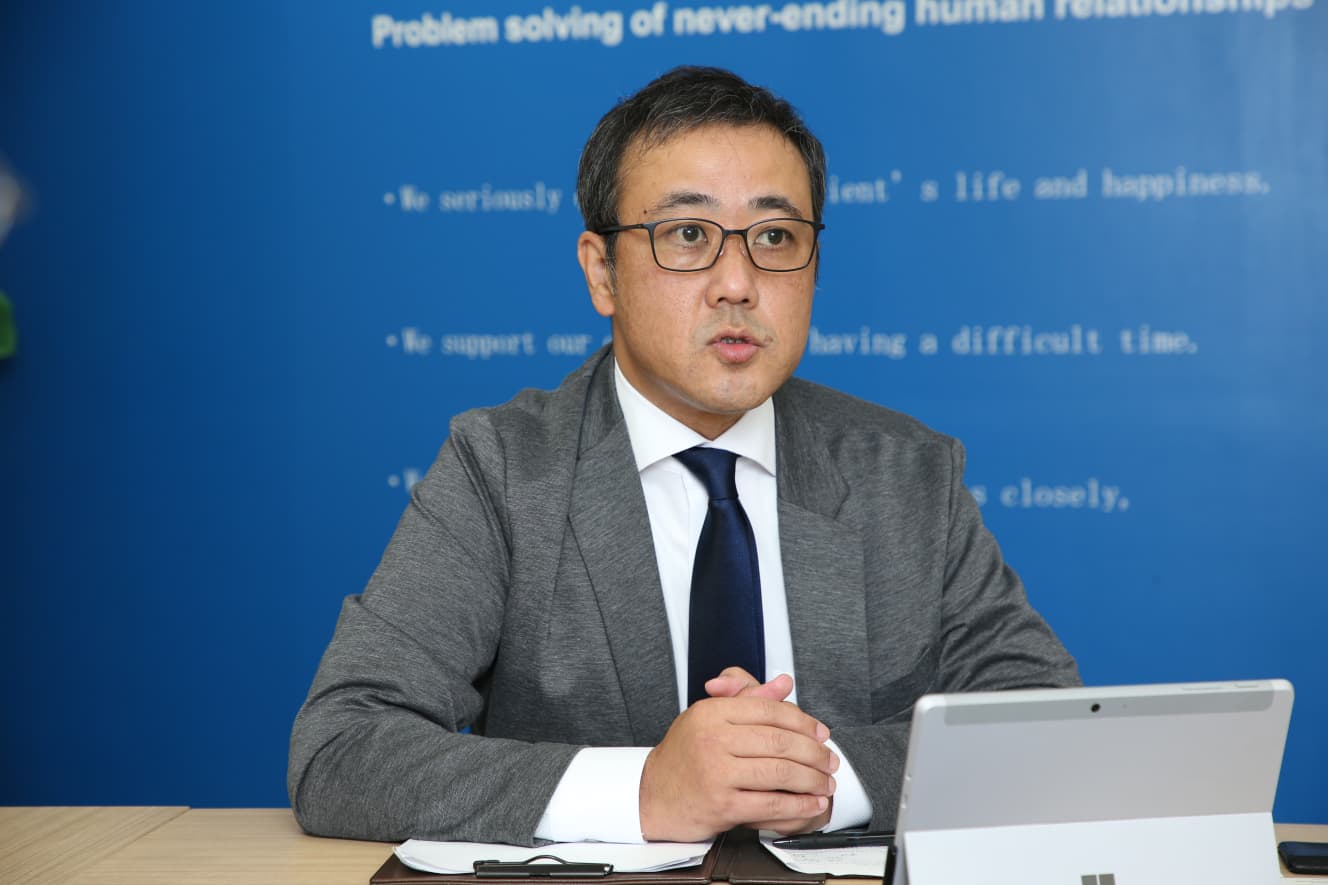Low-educated people should disappear”…Investigators of a back-account identification service found a bad social networking account of a Generation Z job hunter.
Now that compliance is becoming more important, even large companies that everyone knows about are investigating the “behind-the-scenes” accounts of job hunters to learn more about their backgrounds,” says Hiroshi Tsunoda of the Corporate Research Center.

In order to determine the presence or absence of “compliance risk” before hiring, companies are now increasingly investigating the SNS of job-seeking students. Of particular interest are anonymous accounts known as “back accounts. In many cases, the real feelings of students, such as complaints and bad language, are posted on these accounts, making them valuable data for companies to learn about the “true nature” of students.
With such demand growing, a service by professionals in SNS research to identify the real “behind-the-scenes” information of students is gaining in popularity.
In a room at the Corporate Research Center (Chiyoda-ku, Tokyo), investigators are engaged in serious identification work. This is the “Investigation Room,” which identifies student backstage accounts based on requests from companies. We interviewed Mr. Hiroshi Tsunoda, one of the investigators, and Mr. Takuma Tsurumochi, executive director of Tsurumochi, to get a closer look at the reality of this service.
A young man who has studied abroad in Japan, but behind the scenes he is a rabble-rouser
His TOEIC score is in the 800s. On his real name’s SNS account, he posts photos of himself happily rubbing shoulders with local foreigners at his study abroad destination. He has fresh-looking short hair and a friendly smile. Her muscular physique also shows her vitality.
This is a “front” profile of a student who had a job interview with a large company. He is a picture-perfect young man, and many companies would love to have someone like him.
However, his “inside face” was completely different. The Corporate Research Center conducted an investigation at the request of this company and found a “backdoor” account.
In the back-alerts, he had written nothing but bad things about people he had come into contact with. For example, he wrote ‘trash,’ ‘shit,’ and ‘I hope he dies,’ in a superior manner to university professors and corporate interviewers. He also showed a strong sense of elitism in his posts such as, “I wish people with higher education and people with lower education would separate their spheres of life. Although he is allowed to speak out, this is his true nature. I felt that it would be difficult for him to work in a group,” said Kakuta.
While a backdoor account to talk about one’s hobbies would be cute, there are many students who have such “dedicated accounts for slander.
There are two types of slanderous accounts: those that take advantage of the flames on the Internet to bash celebrities and those that speak ill of people close to them, such as their university or part-time job. While the former is also a problem, more attention should be paid, especially in the case of the latter. Once they join the company, their colleagues at work are likely to become their targets. It would be cute if it was just a small complaint, but some of them may post words such as ‘I will kill ●●’ or other words that could be a sign of danger. Therefore, we keep a close eye on the content as well as the wording, and pass the results of our analysis on to the client.
In addition to slanderous material, there are also many erotic back-alerts. There, some post masturbation and other sexual content, and some use the accounts like a dating service. Today’s young people create accounts for different purposes, so it is not surprising that they have five or six accounts, including their main and back accounts,” said Kakuta.
Why Are Corporate Investigation Requests Increasing So Rapidly?
Many people may think, “I didn’t know that companies would investigate such things ……,” or “It’s scary that they would investigate backstage accounts ……,” or something like that when they hear this story. However, according to Tsurugimochi, it is common practice for companies, especially foreign-affiliated companies, to investigate the backgrounds of people they plan to hire.
Originally, our main clients were foreign-affiliated companies, and since background checks of students, including those on social networking services, are commonplace in other countries, it means that the same thing is now required in Japan as well. Overseas, there is a high awareness of the danger of terrorism and noncompliance, so the culture is to scrutinize not only the skills but also whether the person to be hired is not a risk.
In contrast, until recently, background checks tended to be avoided in Japan. The tide turned with the Corona Shock three years ago. It became difficult to conduct interviews and company information sessions, which used to be conducted in person. In the midst of this situation, there was a sharp increase in the number of inquiries from Japanese companies asking if they could obtain information that would lead to hiring through social networking posts. The fact that more and more cases of social networking postings by employees and related parties have led to a huge firestorm has also had an impact.
However, HR personnel are not social networking professionals, so it is difficult to find anonymous backstage accounts, and they cannot spend that much time and effort on new graduates who are still in the consideration stage of whether to hire them. That is why our company is undertaking the research for 16,500 yen per person. We now receive about 300 to 500 requests per month.
We only investigate data from social networking services, so we are not violating any laws, but using social networking services involves a certain level of risk, and I think that even students need to take that risk into consideration when using these services. Tsurugimochi
Although the behind-the-scenes information revealed by the survey is astonishing, Tsurumochi stresses that he is not looking for anything wrong with the students.
When we conduct the survey, we find that about 30% of the respondents have some kind of concern. On the other hand, we often find positive information, such as the fact that they received an award for rescuing a drowning child, or that they were the captain of their club and won second place in the Kanto tournament. It seems that today’s young people tend to hide even good things from the public, perhaps not wanting to be thought of as ‘bragging all the time. The purpose of the backdoor survey is to help companies in their hiring process by revealing what kind of person the student is, taking all of these good and bad aspects together.
We live in an age where 30% of new graduates quit within three years of joining a company. I don’t think it is right to dismiss this as ‘today’s young people are insufferable. There may be more than a little mismatch between the aptitude of students and companies. If we can determine the aptitude of students through account surveys and hire people who are a good match for the company, we can reduce the turnover rate and assign them to jobs that match their aptitudes. I believe that this will definitely benefit the company and, by extension, Japanese society.
The time may soon come when backdoor investigations will become an essential part of new graduate hiring. Or perhaps students will learn about the realities of such surveys and stop using backdoor methods.

Interview and text by: Keitaro Haga